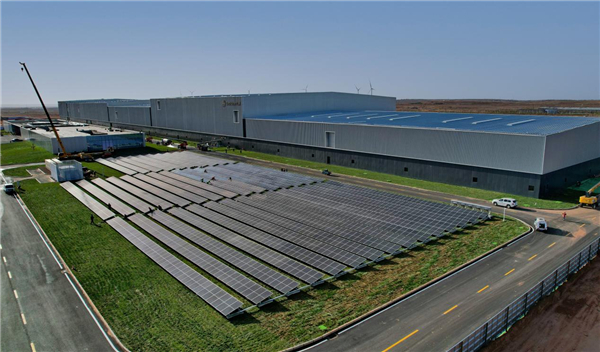Inner Mongolia's economy stays strong in Q1

A view of a modern energy equipment manufacturing industrial park in the city of Ordos in Inner Mongolia autonomous region [Photo/Inner Mongolia Daily]
In the first quarter of this year, the GDP of North China's Inner Mongolia autonomous region reached 507.84 billion yuan ($76.20 million), a year-on-year increase of 5.8 percent, higher than the national average in the same period.
This was revealed at a recent press conference on the region's economy.
As of the end of March, Inner Mongolia was home to 2.42 million market entities, an increase of 25,000 from the end of the previous year.
From January to March, 86,000 new market entities were established in the region, a year-on-year increase of 19.96 percent. Among them, 83,900 were newly-registered private enterprises and individual industrial and commercial households, accounting for 97.44 percent of the total.
Additionally, in the first quarter, the region's fixed-asset investment increased by 59.6 percent year-on-year.
It was reported that these impressive economic indicators for Inner Mongolia were delivered against demand contraction, supply shocks and weakening expectations.
The region's efforts to improve the business environment have greatly contributed to its high-quality economic development.
On Feb 1, the "Inner Mongolia Autonomous Region's Action Plan for Serving Market Entities with a Better Business Environment" was released and implemented, turning the blueprints for smart approval, smart regulation and smart services into reality.
On April 6, Inner Mongolia released the "1+7+2" policy system—including the "Implementation Plan for Promoting the High-quality Development of the Service Industry in Inner Mongolia Autonomous Region"—injecting vitality into the development of the region's service industry.
Elsewhere, the Inner Mongolia Administration for Market Regulation launched 90 measures this year to allow regulatory and law enforcement matters involving market regulation departments to be handled entirely online.
The measures have played an essential role in solving prominent business environment problems faced by enterprises.



 Print
Print Mail
Mail





